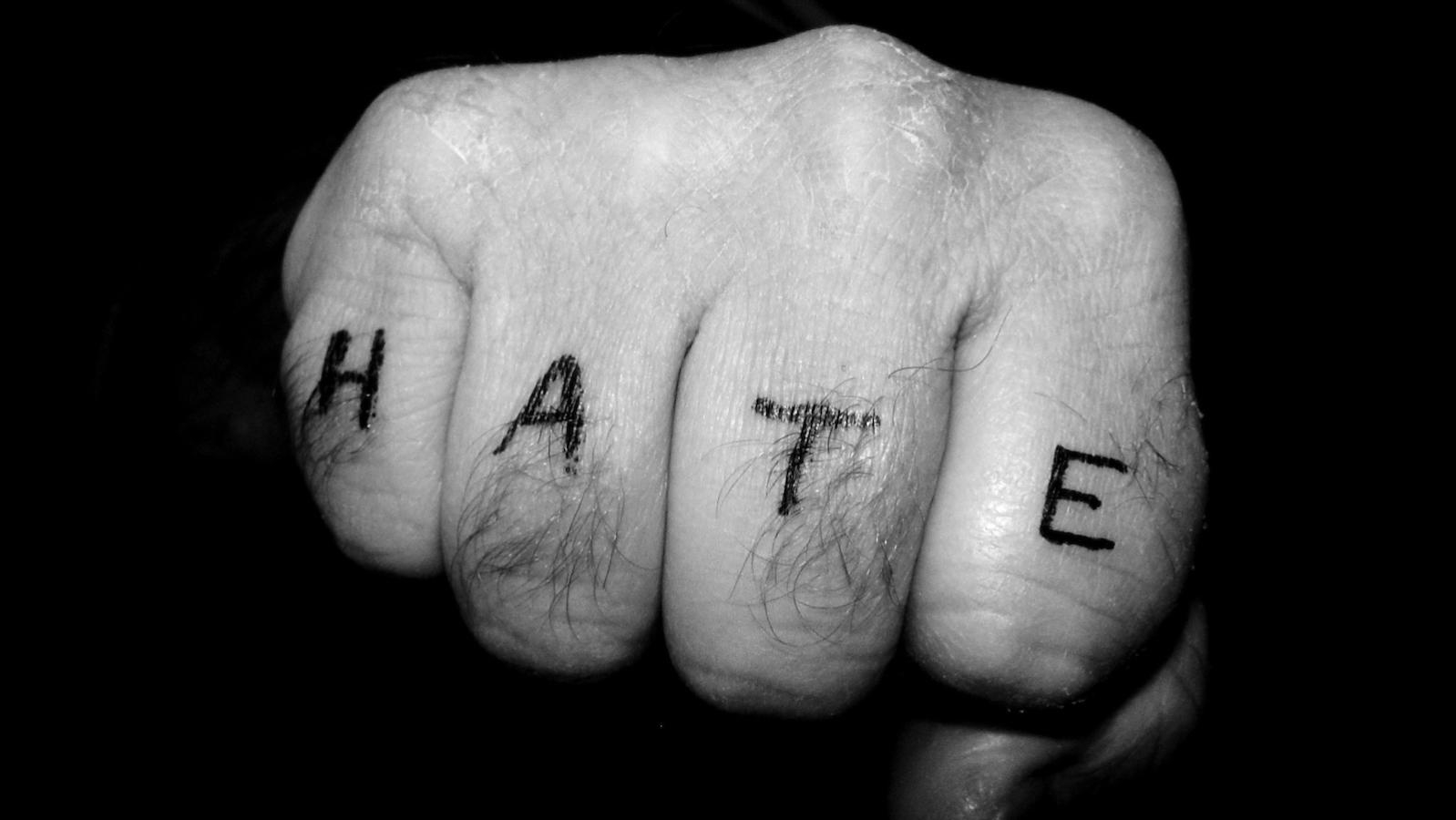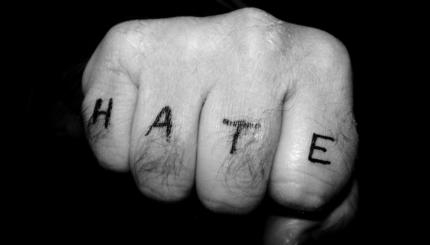Several things go through your mind when you see a person with a swastika tattoo—things like fear, curiosity, and panic.
Especially when you see the swastika tattoo on the hand of a man sitting next to you on the Greyhound bus.
Especially when you’re an 18-year-old kid riding the bus to a Jewish camp.
I was a senior in high school, on my way to staff a junior youth event at URJ Jacobs Camp. My dad had driven me to the bus station and taken my picture as I climbed aboard the bus from my home in Birmingham, Alabama to Jackson, Mississippi. I stowed my backpack, sat down in the first available seat — and found myself sitting next to a man with a small swastika tattooed on his hand, just below his right thumb.
My first instinct was to move, but every other seat was taken and we were pulling out of the Birmingham station. I can honestly say that I have never tucked away my mezuzah necklace faster.
The next half hour, I covertly texted friends as I tried not to look at the man next to me.
What should I do?
Can he tell I’m Jewish?
Is he going to try to hurt me?
Are there others traveling with him?
And then, for some reason, my curiosity overcame my fear and I heard myself ask him: “So, what’s bringing you to Jackson?”
To my surprise, he answered me: “I’m actually going all the way to California, to see my parents.”
After telling him that I was heading to staff a retreat at a summer camp, I did something that my father would later describe as the bravest and stupidest thing I’ve ever done.
“So,” I said gesturing to his hand, “what’s that?”
His face fell a bit. I immediately regretted asking and was about to mumble some apology, but before I could, he replied: “I was a stupid kid, I was in a place where I didn’t know many kinds of people.” He went on to tell me about growing up as part of a white pride group with his friends. He told me that he had a rebel flag and a Confederate soldier on his upper arm. He told me he regretted his tattoos, and that he tries to make friends from all backgrounds. “I think everyone should make friends different from themselves; I think it’s good for people.”
He kept intense eye contact with me while saying this. His intensity was off-putting, until he said something that made me realize his agenda.
“This,” he said insistently, pointing to his hand, “isn’t cool.”
It dawned on me; he thought I was asking about his tattoo, because I was admiring it.
“Oh, I know sir,” I said, still taken aback from his intensity. “I have friends from all kinds of backgrounds. In fact, the reason I asked about your hand…”
I trailed off. Did I really want to out myself to this man? What if he was lying? Eventually, I decided that there were enough potential witnesses around me, and that I had already dug myself deep enough by talking to him in the first place.
“I’m Jewish,” I said, pulling out my necklace.
The man was silent. Almost immediately, I wanted to run off the bus and take my chances jumping into the soft grass on the side of the interstate. After about 10 seconds, the man broke the silence:
“Oh.” A pause. “Well, how do you feel about Jesus?”
I went on to explain what many Jewish scholars said about Jesus’ role in Jewish tradition. I expected him to argue with me, or even cut me off, but he gave me every impression of genuinely being interested in what I had to say.
After I was done speaking, I wanted to get off the topic of religion, so I asked him what he was going to do in California. He told me that he was going to see his mother for the first time in 15 years. He told me about the abuse that he had faced as a teenager, and how he had left home after defending himself from physical abuse. He had fought his father and beaten him after a particularly bad day of abuse, and left his house at a very young age.
Taken aback by this sudden display of openness, I simply sat back and listened to his story. He went on to tell me how he joined a gang of white supremacists and lived with them for a number of years before becoming a contractor in Florida. Through his work, he told me, he interacted with many people of all different backgrounds and slowly learned that everyone is the same inside. Over the past decade, he started taking every opportunity to talk to people who used to be like him, to try to change their minds.
For the rest of our time together, we talked about our respective families, and he kept on asking me questions about Judaism and my personal observance. By the end of our time together, I was sad to see him go. I shook his hand, pressing my thumb into this tattoo, and wished him well in California.
“Why did you talk to him?!” My father asked when I immediately called him.
Over the weekend at Jacobs Camp, I realized that I talked to him for the same reason that I had chosen to take a bus to Mississippi and work with kids, for the same reason he chose to talk about his past experiences with me and others, and ultimately for the same reason I would later move to Jackson to be an ISJL Education Fellow: to shine a light, to be an example, to push myself and others to become our best selves.



